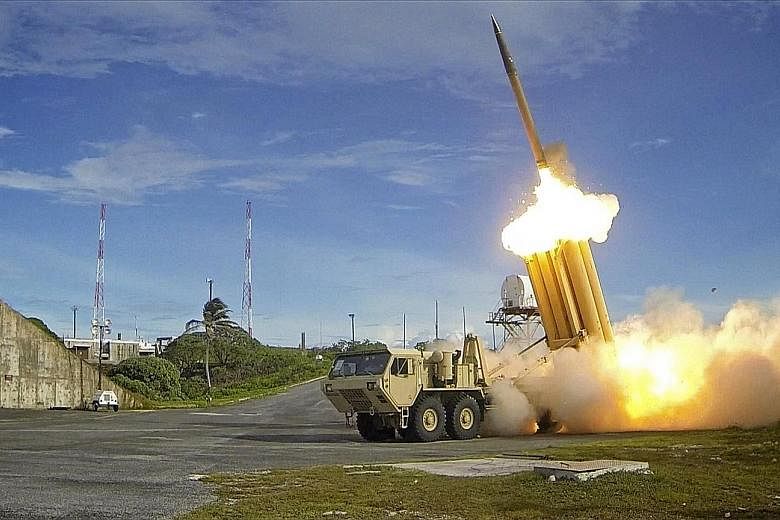The differences between China and the United States over how to deal with the North Korean nuclear issue have come to the fore, ahead of US Secretary of State Rex Tillerson's visit to Beijing today.
China yesterday reiterated its proposal for the US and South Korea to suspend large-scale military drills, and for North Korea to halt its nuclear and missile development, so both sides can go back to the negotiation table, first suggested by Foreign Minister Wang Yi last week.
But Mr Tillerson, in Seoul yesterday, spoke about a military option while US envoy to the United Nations Nikki Haley on Thursday ruled out going back to the six-party talks - negotiations that involved China, the US, North and South Korea, Japan and Russia from 2003 to 2009 - saying "been there, done that".
Chinese Foreign Ministry spokesman Hua Chunying, responding to Ms Haley, said: "China has always believed the six-party talks are an effective platform for resolving the Korean peninsula nuclear issue."
Ms Hua also addressed the possibility of the US pressuring China to do more to rein in North Korea by increasing penalties against Chinese companies and banks that do business with the North. She said Beijing was opposed to "improper sanctions that may harm Chinese interests".
Mr Tillerson is scheduled to start a two-day visit to Beijing today during which he is expected to discuss the North Korean nuclear issue, the summit between US President Donald Trump and Chinese President Xi Jinping, and the South China Sea disputes, among other things.
Resolving the North Korea issue has taken on a new urgency as Pyongyang has, through its recent missile tests, shown its increased capability to target neighbouring countries, including South Korea and Japan, both of them US allies.
Washington and Seoul have also sped up plans to deploy the Terminal High Altitude Area Defence (Thaad) anti-missile defence system as part of South Korea's defence against the North. But Beijing is opposed to Thaad as it believes the system's powerful radars can be used to spy on its military movements.
The South Korean government is concerned that the Chinese are taking discriminatory actions against South Korean companies because of the Thaad deployment.
Mr Tillerson said yesterday: "While we acknowledge Chinese opposition, its economic retaliation against South Korea is inappropriate and troubling. We ask China to refrain from such action. Instead, we urge China to address the threat that makes that necessary."
The differences between China and the US over the North Korea nuclear issue are technical in nature, noted Professor Jia Qingguo of Peking University.
While the US wants to use sanctions and military threat to resolve it, China thinks this will lead to bad results and prefers to do so through talks.
But their aim is the same - to have a denuclearised Korean peninsula, he said.

